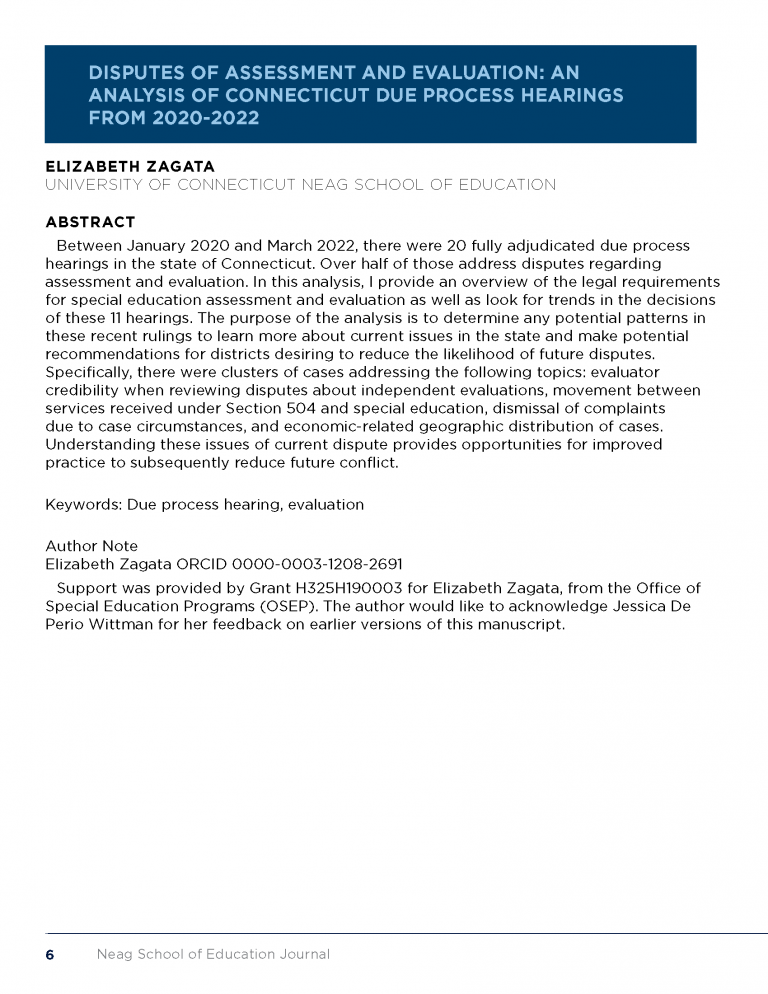Authors
Elizabeth Zagata, University of Connecticut Neag School of Education
Abstract
Between January 2020 and March 2022, there were 20 fully adjudicated due process hearings in the state of Connecticut. Over half of those address disputes regarding assessment and evaluation. In this analysis, I provide an overview of the legal requirements for special education assessment and evaluation as well as look for trends in the decisions of these 11 hearings. The purpose of the analysis is to determine any potential patterns in these recent rulings to learn more about current issues in the state and make potential recommendations for districts desiring to reduce the likelihood of future disputes. Specifically, there were clusters of cases addressing the following topics: evaluator credibility when reviewing disputes about independent evaluations, movement between services received under Section 504 and special education, dismissal of complaints due to case circumstances, and economic-related geographic distribution of cases. Understanding these issues of current dispute provides opportunities for improved practice to subsequently reduce future conflict.
Keywords: Due process hearing, evaluation
Author Note
Elizabeth Zagata ORCID 0000-0003-1208-2691
Support was provided by Grant H325H190003 for Elizabeth Zagata, from the Office of Special Education Programs (OSEP). The author would like to acknowledge Jessica De Perio Wittman for her feedback on earlier versions of this manuscript.

